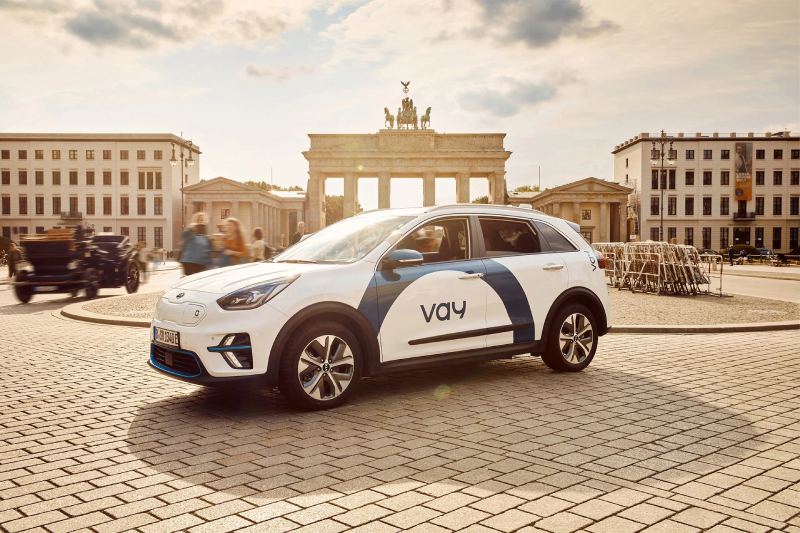In Las Vegas, a German startup has introduced a remote electric vehicle service.
An electric automobile at your feet appears at the push of a button, but the driver’s seat is empty. “Hello, how are you today?” is said by a female voice as soon as the car door is opened and the driver settles in.
It’s Antonella Rosa’s voice, speaking from the Vay Technology GmbH office located in the thriving downtown arts sector of Las Vegas, where she operated the Kia remotely.
The German startup has introduced what might be the US city’s car-sharing model going forward.
The business is marketing the service as “teledriving,” which entails having personnel operate cars remotely to deliver them to consumers and retrieve them after they’re done with them.
Once the vehicle is under your control, you can use it for as long as you like until Rosa or another Vay remote driver comes to get it, saving you the trouble of properly parking it.
Rosa drives the car in the Vay office using a car simulator that has three screens, brakes, pedals, and a wheel.
The Vay remote driver told Euronews Next, “It feels like driving a conventional vehicle, which is awesome.”
“We don’t drive with anyone in the car but there’s still a lot of pressure because we have to deal with our car specifically and people being around us”.
On Wednesday, January 17, the service will formally start in Las Vegas. Initially, it will only be accessible in the vicinity of the University of Nevada and the Las Vegas Arts District.
“This is a completely new mobility service. One might call it car sharing 2.0 because it overcomes the biggest challenges of what we see in today’s car sharing, which is walking to the vehicle and parking it,” Thomas von der Ohe, Vay Technologies’ co-founder and CEO, told Euronews Next.
Driving an automobile costs $0.30 (€0.28) per minute, whereas stops cost $0.03 (€0.028) per minute, which might be utilized for grocery shopping.
“We believe we can really make car sharing into something that can really change, hopefully, and offer an alternative to private car ownership, in particular in large cities like Paris or Berlin or London, where private cars are standing (parked) 95 per cent of the time,” von der Ohe said.
For almost three years, Vay has been testing remote driving technology in Germany, but inside its electric Kia cars is a safety driver.
After obtaining a permit, it became the first company in Hamburg, Germany to remotely drive a car without any passengers in February 2023.
According to Von der Ohe, he is collaborating with European regulators and intends to soon introduce the “teledriving” service on a commercial basis in the EU.


